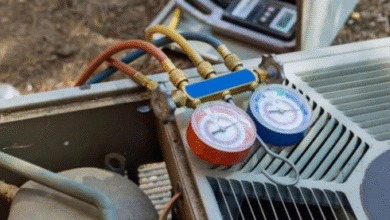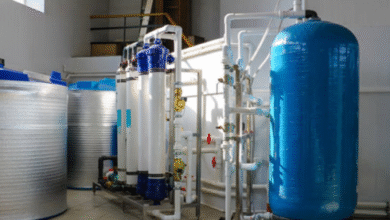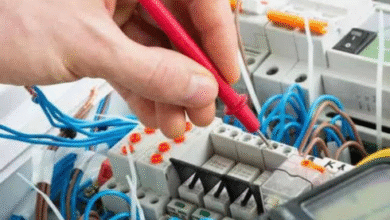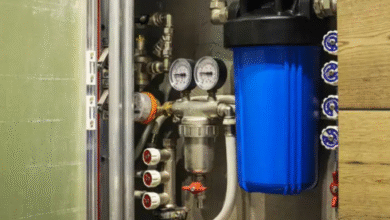Clean Water, Quiet Confidence: Tackling Rural Well Challenges the Right Way
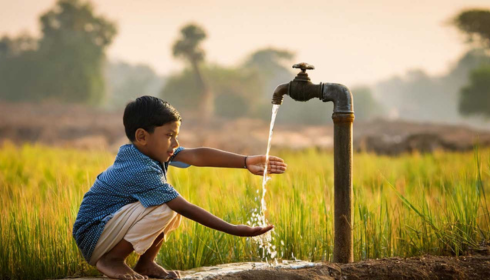
There’s something grounding about living outside the city. Open skies, quiet nights, and a slower pace that doesn’t feel rushed every second of the day. But for all the perks of rural living, there’s one everyday reality that sneaks up on many families: water. When you’re not tied into municipal lines, your well becomes the beating heart of your home. It’s both freedom and responsibility wrapped together. And as anyone who has dealt with odd smells, stains, or test results knows, water isn’t always as pure as it looks.
The Reality of Wells
Pulling water straight from the ground sounds idyllic, but wells carry their own set of quirks. Groundwater passes through layers of soil and rock, picking up minerals and sometimes less welcome hitchhikers like bacteria, nitrates, or sulfur compounds. The result? Water that might look clear in a glass but slowly leaves orange streaks in sinks, odd odors in the shower, or even health questions you can’t shake. That’s why rural well water treatment isn’t just a technical term—it’s the process of making sure the lifeblood of your home is safe, reliable, and pleasant to use.
Everyday Signs Something’s Off
The signs aren’t always dramatic. Maybe it’s your morning coffee tasting metallic. Maybe it’s laundry coming out stiff even with fabric softener. Or maybe it’s guests raising eyebrows when they take a sip of tap water. These little hints are easy to brush aside until they add up. Wells can swing in quality over time depending on rainfall, farming nearby, or even seasonal shifts. Without intervention, those “minor” annoyances can turn into real headaches—shortened appliance lifespans, stubborn stains, or health advisories you never thought would apply to your home.
Breaking Down the Costs
One question everyone circles back to is money. What’s this going to set me back? The cost of rural water system upgrades depends heavily on what you need. A simple sediment filter to handle cloudy water is on the lower end, while multi-stage filtration or UV disinfection adds more. Softening systems that tackle hard water minerals land somewhere in the middle. For some households, the biggest investment is drilling a deeper well altogether. The important thing to remember is that cost isn’t just about equipment—it’s about weighing it against bottled water expenses, appliance replacements, constant cleaning supplies, and peace of mind you can’t put on a spreadsheet.
Why Testing Comes First
It’s tempting to jump straight into buying filters, but without testing you’re shooting in the dark. A proper water test tells you whether you’re dealing with iron, sulfates, bacteria, or nitrates, and in what concentrations. That knowledge shapes your entire approach. Maybe you just need a softener, or maybe you need a layered solution that combines filtration and disinfection. Once you know what you’re up against, you can pick tools that actually solve the problem instead of playing trial and error with your health and your wallet.
Practical Benefits You’ll Notice
When treatment systems are in place, the difference shows up everywhere. Showers feel less drying. Dishes finally come out of the dishwasher spotless. Laundry looks and feels cleaner. Coffee and tea taste the way they’re supposed to, without odd notes sneaking in. Even your pets notice—many homeowners say their dogs and cats drink more when the water tastes better. The biggest shift, though, is the sense of confidence that comes with every glass you pour, knowing you don’t have to second-guess it anymore.
Service That Sticks Around
Technology is one part of the puzzle, but service is the other. Wells and treatment systems need occasional attention—filters swapped out, salt added to softeners, maybe seasonal adjustments depending on rainfall. That’s where companies offering Infinite Water rural solutions stand out. They don’t just sell you equipment; they back it with ongoing support, maintenance, and advice tuned to rural realities. Because living outside the city doesn’t mean you should have to worry every time you turn on the tap.
Thinking Beyond the Kitchen
It’s easy to frame water quality around drinking, but the benefits ripple further. Soft water keeps plumbing clear, reducing the chance of costly repairs. Appliances last longer because they’re not battling mineral buildup. Even your garden benefits when irrigation water isn’t loaded with excess minerals or chemicals. For families raising kids, clean water means confidence in baths, bottles, and backyard sprinklers alike. It’s not just one faucet you’re protecting—it’s the rhythm of your entire household.
The Long Game
Water treatment isn’t flashy. It’s not like a kitchen remodel or a new truck that neighbors notice right away. But in the long run, it may be one of the smartest investments you make in your home. It saves money by preventing breakdowns. It saves time by reducing cleaning battles. It saves worry by protecting your family’s health. And in rural life, where self-reliance is part of the deal, knowing your water is handled gives you one less thing to stress over.
The Emotional Side of Clean Water
Beyond the dollars and data, there’s an emotional comfort to clean water that’s hard to describe until you’ve felt it. It’s in the ease of offering a guest a glass without hesitation. It’s in the relief of knowing your kids are drinking safely. It’s in the quiet joy of seeing sinks and tubs stay clean instead of fighting constant stains. It’s the background confidence that helps your home feel like a safe, welcoming place. Clean water doesn’t shout—but you feel its presence every single day.
Wrapping It Up
Rural life comes with its challenges, but water quality doesn’t have to be one of them. With the right testing, the right system, and the right support, wells can provide water that rivals or even surpasses city supplies. Whether it’s addressing hard water, tackling iron, or simply wanting reassurance, the tools and services exist to make it happen. And once you make the shift, you stop thinking about water as a problem—and start appreciating it again as the quiet, dependable foundation of daily life.
